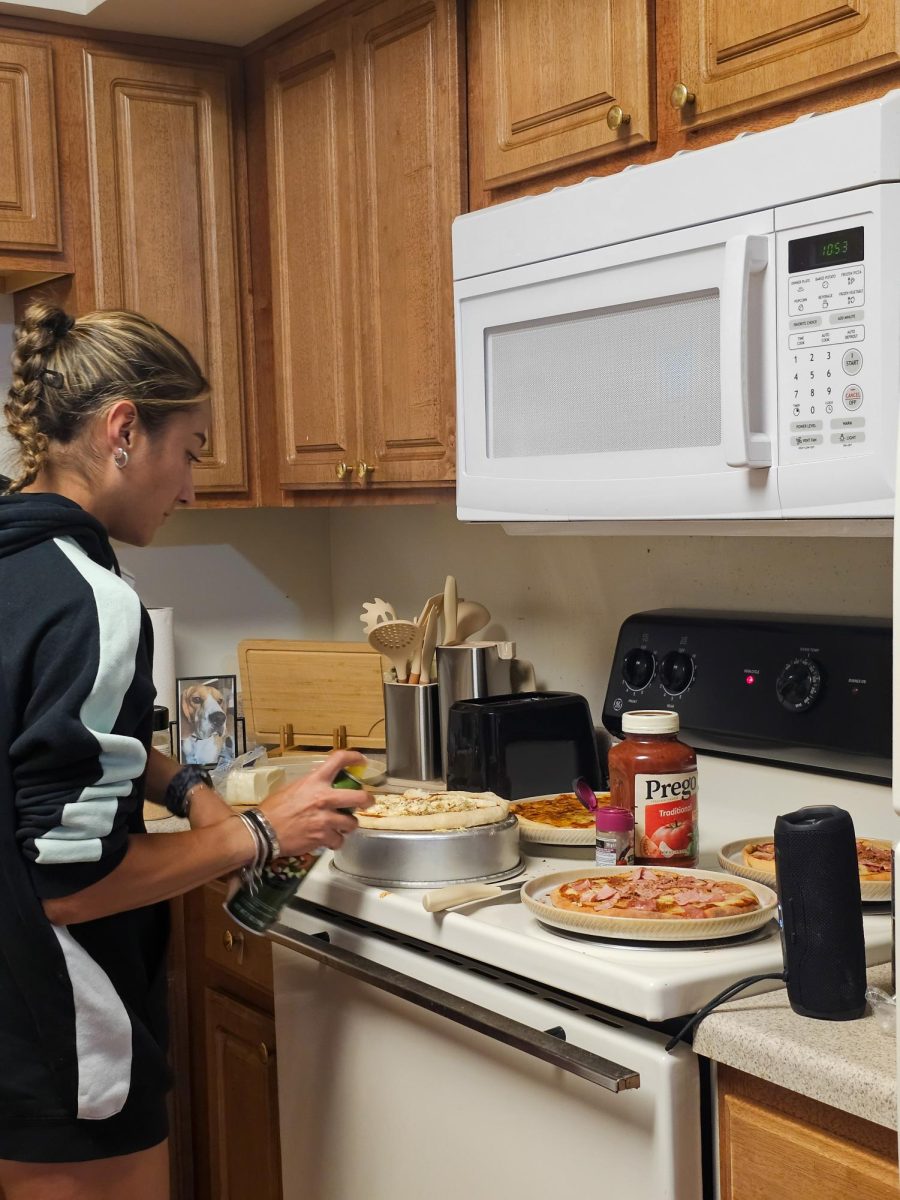PNW students are struggling to stretch their dollars as the cost of living soars.
The nation’s annual inflation rate rose to 2.9% last month, according to a Bureau of Labor Statistics report. One of the biggest reasons was an increase in grocery prices, which experienced the highest monthly jump in three years.
“With the purchasing power of the dollar decreasing every day I [am] … buying less groceries for the same amount of money,” said Kyle Worden, a junior Psychology major. “I would [normally] spend $5 on a pound of ground turkey and now it costs $7.”
To stretch their dollars, students are finding lower-cost alternatives to their regular grocery stores.
“I am coping with this inflation … making sure I shop at grocery stores I can afford,” said Grace VanDerNoord, a freshman English Teaching major.
Hayley Tsuen, a senior Computer Engineering major, is doing the same thing.
“I’m working more hours just so I can get that extra income,” she said. “Additionally … I am shopping at Aldi’s instead of Meijer or Walmart just because it’s the cheapest alternative.”
But for Tsuen, it doesn’t stop at groceries.
“I’ve also started carpooling … with my roommates … to reduce the amount of gas that we use,” she said.
Gas prices have risen by more than 50% during the last five years. In August, the latest figures available, the average cost per gallon nationwide reached $3.43.
“Inflation affects my daily life,” said Sarah Miller, a Liberal Studies major. “[It] has made gas prices steadily rise and it’s costing more and more for a full tank.”
Rising prices that plague students are fueled by higher costs and, potentially, the impact of recently imposed federal tariffs on imported goods.
“I have noticed goods that come from across the globe have skyrocketed in price due to some of the tariffs implemented by our president,” said Jacob Nick, a junior History Education major. “I have moved to strictly buying American-produced goods. While their cost has gone up a tad, it is not as bad as some of the other brands I have seen.”
The impact of tariffs is likely to become more obvious as more recent levies take effect. For example, President Donald Trump announced a 50% tariff on all goods from Brazil. About 30% of U.S. coffee is imported from that country. The higher tariff took effect in August.
The situation is taking a toll on students.
“To cope with this inflation … I have to cut down on certain things I used to be able to enjoy, certain things I used to de-stress and then certain things I used to do,” said Hannah Vargas, a senior Biological Science major. “I like listening to podcasts, like stuff to help me stop thinking about [worries]. … [But] I don’t have a well-paying job and everything’s going up. … Because of that I have to try to cut back and find free ones, but those aren’t as good as the ones I’m used to.”
Grace Tafolla, a junior Environmental Science and Policy major, is looking for extra work.
“I’m coping with inflation by getting second and third job positions to make ends meet,” she said. “The bills have gone up, but my pay has not. It’s forcing me to spend more time on work and less time considering … important things.”








